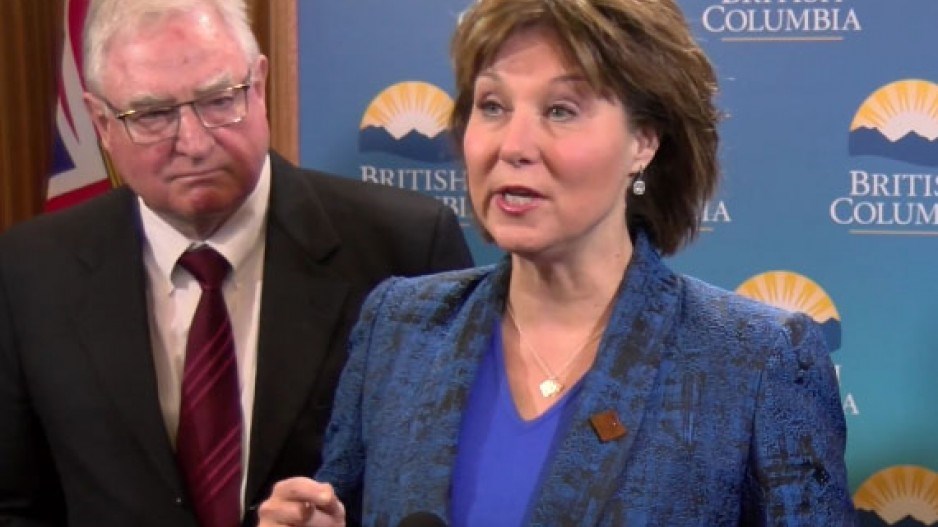David Emerson, B.C.’s recently appointed Special Envoy to the U.S., met with American negotiators today to discuss softwood lumber in what he described as a good but “prickly” meeting
Emerson, a former federal international trade minister, has been meeting with officials in Ottawa, Quebec and Washington over the last three days to try to set the stage and tone for negotiations aimed at trying to get a new softwood lumber agreement.
“We’re not negotiating but we’re certainly setting the table,” Emerson said.
In Ottawa, Emerson met Foreign Affairs Minister Chrystia Freeland and Québec's Representative to the U.S., Raymond Chretien. In Washington, he met with officials with the U.S. Trade Representative's office, the National Association of Homebuilders and “key senators.”
Emerson described his meeting with U.S. officials as “a good meeting but a prickly meeting.”
After the last softwood lumber agreement expired in October 2015, the U.S. International Trade Commission began investigating allegations by the U.S. Lumber coalition of dumping by Canadian producers.
Such investigations typically result in anti dumping and countervailing duties. Fighting the duties through international courts takes years.
Historically, interim duties applied against Canadian duties are almost never upheld by international trade tribunals and the companies that paid them usually get some of the money back.
“But they do hurt,” Emerson said. “It requires cash, and some companies are well-placed to be able to handle that, some companies are not.
“Last time around, the litigation went on for five years. We ended up handing $1 billion of cash over to the coalition and coalition interests. You could say we won, but it was a Pyrrhic victory.”
Emerson said a negotiated settlement is always preferable to long drawn-out litigation.
While the fundamental complaint is the same this time around – that Canada subsidizes its forestry sector through its Crown tenure system – Emerson said additional products, like Coastal cedar, may now also get caught in protectionist measures.
“The scope of this litigation is broader,” Emerson said. “Products that were not included in the past have been included.”
Another difference in the current attempts to get a new agreement is that the North American Free Trade Agreement (NAFTA) is now being reopened. Softwood lumber was specifically exempted from NAFTA.
“We do not know the degree to which softwood lumber per se is going to get caught up in the NAFTA negotiation,” Emerson said. “So we’ve got to try to keep our head above water until we determine whether we can deal with softwood lumber before a NAFTA negotiation.”
Although three of B.C.’s largest forestry companies now own more mills in the U.S. than they do in Canada, they are not allowed to be part of the American Lumber Coalition.




